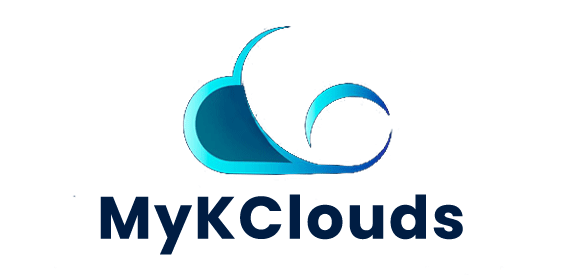
“Cloud computing is not only the future of computing but the present and the entire past of computing.”
— Larry Ellison
Future-Proofing Your Business: Embracing Cloud Storage with a Sustainable Edge
As of 2022, over half of all corporate data resides in the cloud, reflecting the soaring demand for cloud storage. However, this surge has led to significant energy consumption across the data center industry, contributing to substantial greenhouse gas (GHG) emissions.
The European Commission now warns that by 2030, the energy usage of EU data centers could rise from 2.7% to 3.2% of the Union’s total demand. This would position the industry’s emissions close to those of the EU’s international aviation sector. Yet, it’s crucial to recognize that cloud storage is still a more sustainable option compared to traditional alternatives.
Why Cloud Storage Remains a Sustainable Choice
The energy consumption of cloud storage should be viewed in context, particularly considering the efficiencies it introduces elsewhere. Cloud-based file storage and sharing enable teams to collaborate from anywhere, reducing the need for large office spaces and daily commuting.
This shift allows businesses to downsize their physical footprint, cutting down on the environmental impact of employee travel. Studies suggest that working from home just four days a week can reduce nitrogen dioxide emissions by about 10%.
Moreover, cloud storage diminishes the need for physical, on-premises servers. For small and medium-sized businesses (SMBs), maintaining on-site servers or data centers can be costly, both in terms of financial outlay and energy consumption, leading to increased CO2 emissions.
In contrast, cloud servers present a more efficient alternative. Unlike on-premises servers, which may operate well below their capacity, cloud servers in data centers are optimized for high efficiency. Virtualization technology allows a single physical server to function as multiple virtual servers, which can be utilized by different businesses. This results in fewer physical servers being needed, reducing both energy usage and emissions.
Additionally, on-premises servers are often overbuilt to handle occasional demand spikes, leading to resource inefficiency. Cloud data centers, by pooling resources, manage these spikes more effectively, further enhancing efficiency.
In 2022, data centers showed improved power usage effectiveness, indicating that cloud providers are increasingly optimizing energy use, thus helping companies lower their carbon footprints through cloud storage.
Transitioning to Green Cloud Storage: Three Essential Steps
There are actionable steps businesses can take to enhance the sustainability of cloud storage, potentially achieving energy savings of 30-50% through green strategies. Here are three key steps to transforming ordinary cloud storage into green cloud storage.
- Choose the Right Location: Selecting a cloud storage provider close to a power generation facility is critical. The proximity reduces energy loss during transmission. Additionally, opting for data centres in cooler climates or even underwater can significantly reduce the energy required for cooling.
- Evaluate the Provider’s Environmental Commitment: Businesses should inquire about their provider’s efforts to minimize environmental impact. Providers that harness renewable energy sources like wind, solar, or biofuels help reduce reliance on fossil fuels and lower GHG emissions. Some facilities also use large battery banks to store renewable energy, ensuring a continuous, eco-friendly power supply.
- Leverage Technology for Efficiency: Technological innovations can greatly enhance the energy efficiency of cloud storage. Providers are increasingly investing in algorithms, software, and hardware designed to optimize energy use. For example, AI and machine learning algorithms, like Google’s DeepMind AI, which cut its data center cooling costs by 40%, demonstrate the power of intelligent systems in promoting sustainability.
How MyKcloud Can Help Your Business Achieve Sustainable Cloud Storage
At MyKcloud, we understand that the transition to sustainable cloud storage is not just about adopting new technologies—it’s about making strategic choices that align with your business goals and environmental responsibilities. Based in Manitoba, MyKcloud is a Cloud Consulting company dedicated to empowering businesses with cutting-edge solutions that drive innovation and transformation in the modern digital landscape.
We offer a comprehensive suite of services, including AWS Migration, Azure Migration, DevOps and SRE, Application Modernization, and Cloud Management, all designed to help businesses optimize their operations, enhance productivity, and achieve their strategic goals while minimizing their environmental impact.
Our team of experts works closely with clients to understand their unique needs and challenges, delivering customized solutions that drive efficiency, agility, and growth. By leveraging our expertise, businesses can seamlessly transition to green cloud storage, ensuring they remain competitive and sustainable in an ever-evolving digital world.
Cloud Storage Without the Environmental Cost
The benefits of cloud computing for businesses are undeniable, but unchecked digital growth could lead to unsustainable practices with severe environmental repercussions. However, businesses should not have to choose between innovation and environmental responsibility.
The solution lies in adopting green cloud storage. By selecting providers that prioritize renewable energy, efficient data centers, and cutting-edge technologies, businesses can enjoy the advantages of the cloud without exacerbating the climate crisis.
Now is the time to act. Businesses must take responsibility by choosing green cloud storage, becoming part of the solution rather than the problem. By partnering with MyKcloud for this transition, your business can ensure that the cloud remains a powerful tool for progress without becoming a contributor to climate change. Let MyKcloud guide you in this journey toward a sustainable digital future.


The jl33login process was super easy, which is always a win. No complicated hoops to jump through, just straight to the games. Highly recommend based on my user experience. jl33login